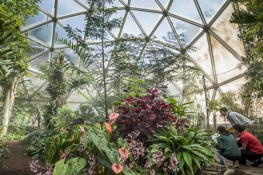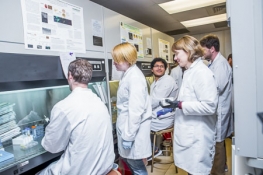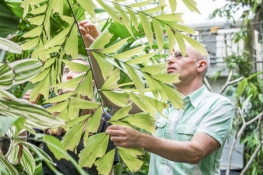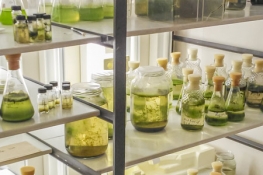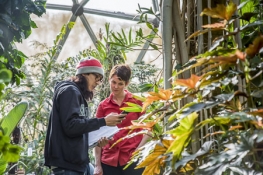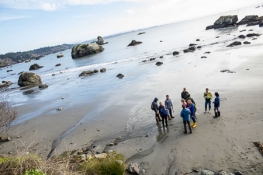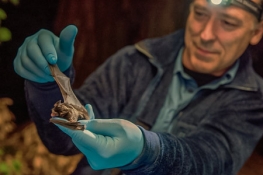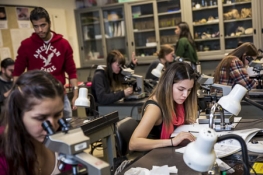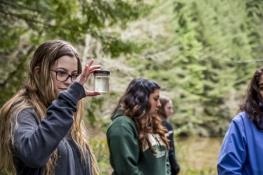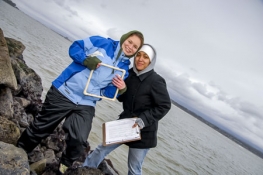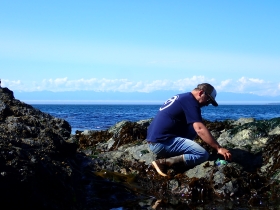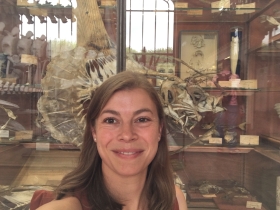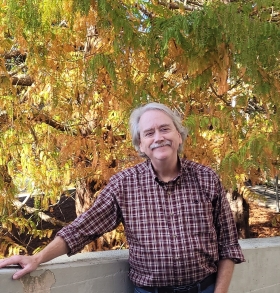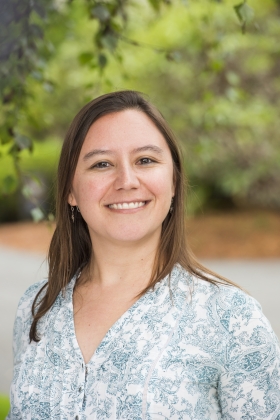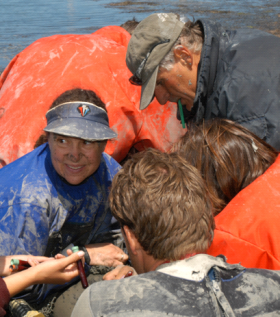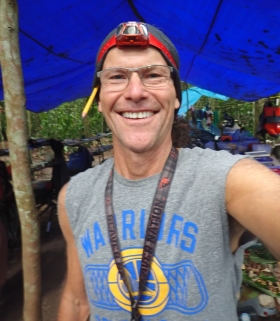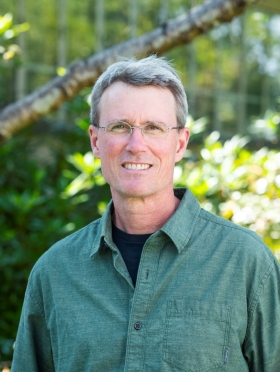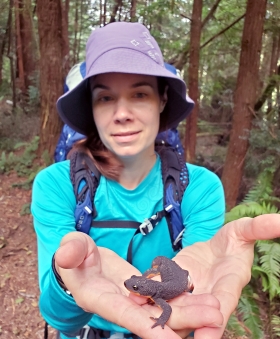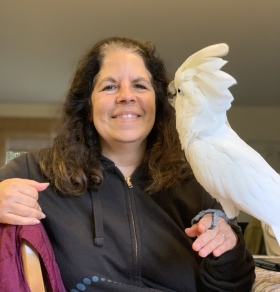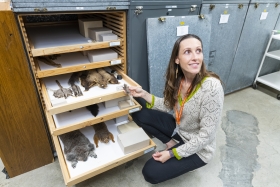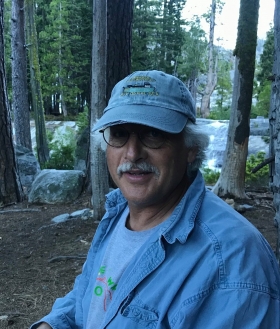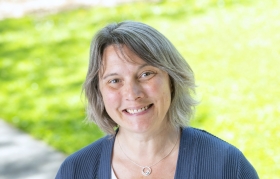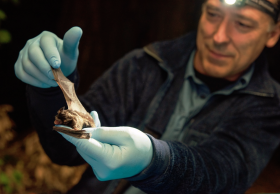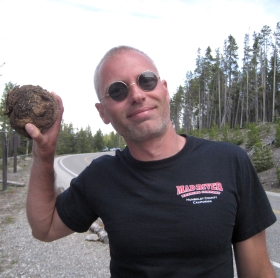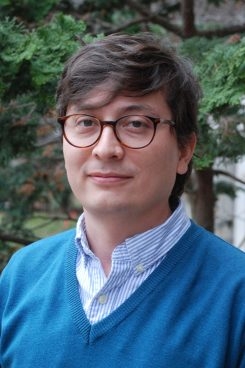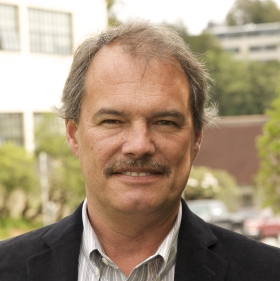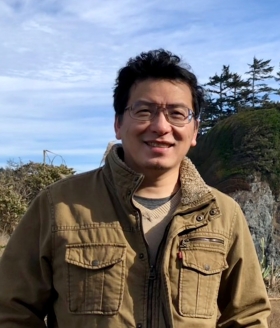Graduate Program
Graduate students in the Master of Science program in Biology at Cal Poly Humboldt can choose to pursue investigations or projects with an emphasis in the laboratory, forests, marine habitats, or a variety of other settings.
This northernmost campus of the California State University is surrounded by ancient redwood forests, fir and pine forests, nearby marine and freshwater habitats, and is within easy driving distance of many national, state, and regional parks. Students can study living processes at all levels, from cellular-molecular to ecosystems. Those interested in an education focus may pursue projects in the form of a book, film or digital media, or curricular resources for educators.
Our graduate program is part of the Western Regional Graduate Program (WRGP), allowing students from the Western US states and territories to pay in-state tuition.
Apply
To apply to our program, follow the step-by-step application instructions
For further information contact:
Dr. Paul Bourdeau
Graduate Coordinator
Department of Biological Sciences
paul.bourdeau@humboldt.edu
Graduate Student Orientation - Fall 2023
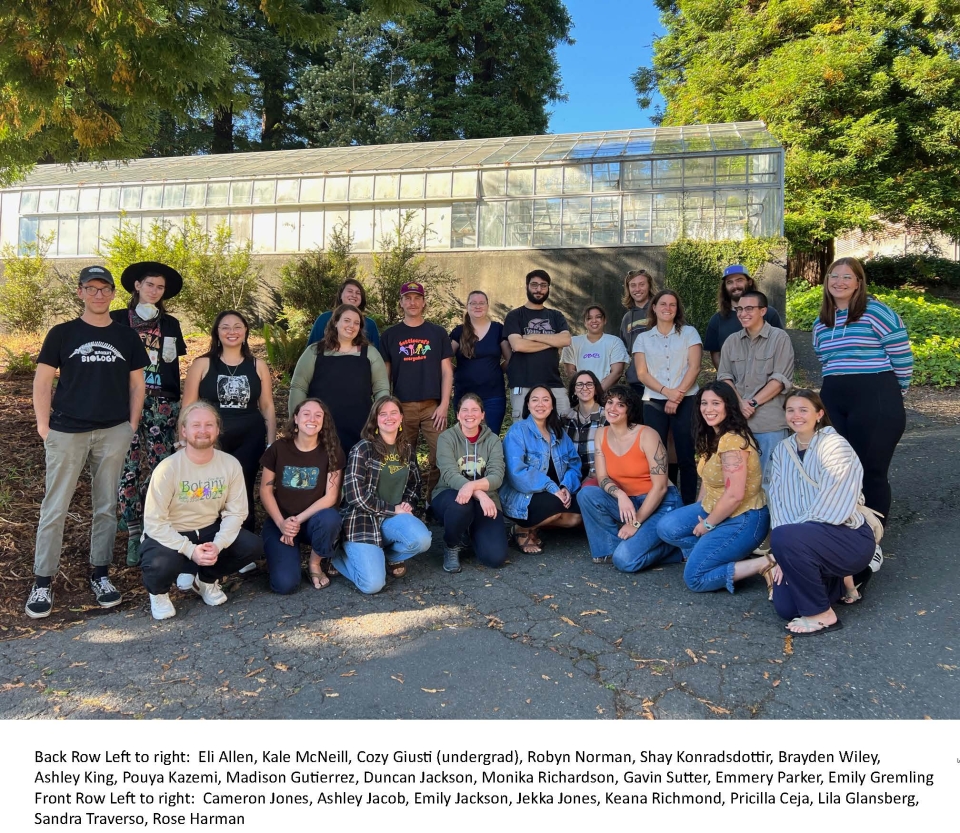
Graduate Student Orientation - Fall 2022
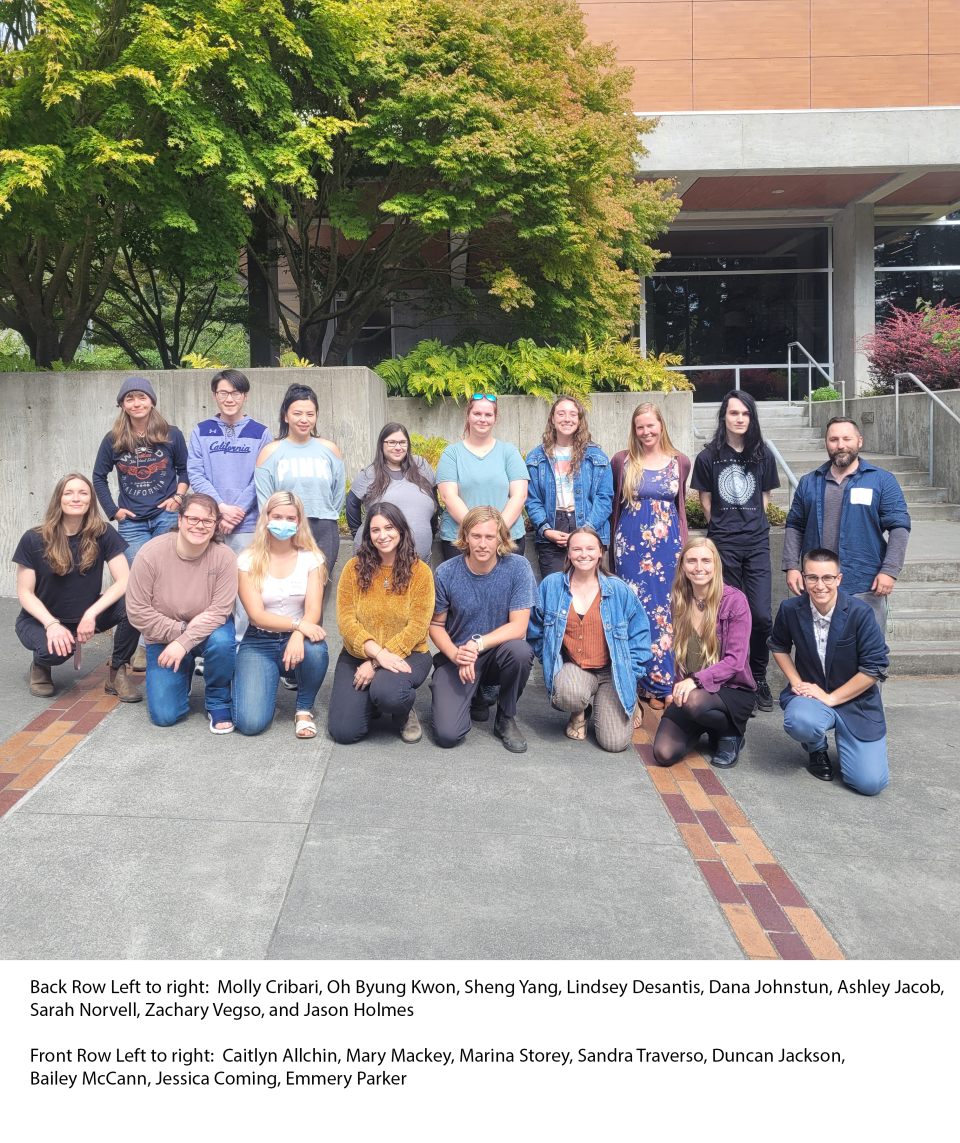
An all-encompassing laboratory
The University is surrounded by relatively untouched biological habitats that provide a wealth of challenging opportunities for study at the Master’s level by the aspiring Biologist, Botanist or Zoologist. These habitats are home to hundreds of different animals, plants, and fungi, many of which are unique to northwestern California.
The department has facilities and faculty expertise that allow Master's students to complete their programs in almost any area of biology. Laboratories on the main campus are equipped for biotechnology, scanning and transmission electron microscopy, mammalogy, genetic analysis (including DNA sequencing), and computer modeling. Field opportunities include the marine laboratory 14 miles from the main campus, a university forest, and a 90-ft ocean going research vessel, RV Coral Sea.
With a strong emphasis now being placed on the training of secondary school teachers in California, an M. S. Degree in Biological Sciences can be combined with a California Teaching Credential for increased depth of learning and job preparation that will allow graduates to compete for jobs on both the national and international level.
Program highlights
Currently, the Biological Sciences Graduate Program has approximately 58 actively enrolled students. Students begin their program by taking both required courses and courses specifically in their area of thesis research. A total of 30 units at the upper-division and graduate level are required to complete the program. Most students complete their Master’s program in two years, but completion in one year is possible under exceptional circumstances. Some areas of study may require a longer period of enrollment depending on the complexity of study and data availability. A written thesis and oral thesis defense is also required to complete the degree.
Each Graduate Student accepted into the program automatically becomes a member of the Biology Graduate Student Association (BGSA). The Association actively participates with the Department in sponsoring a lecture series featuring widely respected university teachers and researchers from throughout the country. Another highlight of the year is the annual mini-symposium where students, faculty, and staff alike share their research interests with informative presentations. A spirit of both social and intellectual interaction is fostered each fall semester by a traditional potluck BBQ where students, staff, and faculty join together for an evening of relaxation and conversation.
There are a number of Teaching Associate positions available to Graduate Students through the Department of Biological Sciences. Assignments typically average teaching 1 lab (3-6 hours) each semester. There is also a fee-waiver program for 1 or 2 qualified out-of-state students per semester (depending on available University funding).
Other financial aid opportunities should be explored through the Office of Financial Aid at 707-826-4321.
Graduate Faculty
Paul Bourdeau Ph.D. - Graduate Coordinator
Assoc. Professor - Marine Biology & Ecology
- peb112@humboldt.edu
- (707) 826-3600
- SciB 234
How marine organisms respond to environmental change brought about by human activities, such as the introduction of non-native species and climate change.
Allison Bronson Ph.D.
Lecturer - Zoology
- awb18@humboldt.edu
- (707) 826-3249
- SciA 355B
Anatomy, Morphology, and Systematics of Living and Fossil Fishes
Sean Craig Ph.D.
Professor - Zoology and Marine Biology
- sfc4@humboldt.edu
- (707) 826-3656
- SciA 457
Marine evolutionary ecology, Bryozoan evolution and ecology, Invertebrate Zoology, and Applied Ecology of Kelp Beds and Marine Protected Areas
Catalina Cuellar-Gempeler Ph.D.
Associate Professor - Cellular/Molecular/Microbiology/Ecology
- ccg@humboldt.edu
- (707) 826-3240
- SciB 322
Microbial community ecology - assembly and function
Terry Henkel Ph.D.
Professor - Botany
- twh5@humboldt.edu
- (707) 826-4841
- SciB 123A
Systematics, ecology, and biogeography of tropical macrofungi; tropical rainforest ecology.
Erik Jules Ph.D.
Professor - Botany and Ecology
- esj4@humboldt.edu
- (707) 826-3346
- Brookins House, 203
Plant ecology, fire ecology, trophic interactions, invasive species, habitat fragmentation, and environmental history.
Karen Kiemnec-Tyburczy Ph.D.
Assistant Professor - Cellular/ Molecular Biology & Zoology
- kmk877@humboldt.edu
- (707) 826-5550
- SciC 104
Evolutionary genetics, chemical communication, evolution of amphibian reproductive behavior and development
Silvia Pavan Ph.D.
Assistant Professor
- sep112@humboldt.edu
- (707) 826-5559
- Science C 106
Systematics, phylogeny and biogeography of mammals, with the use of morphological and genetic data to uncover species diversity
John Reiss Ph.D.
Professor (FERP) - Zoology
- jor1@humboldt.edu
- (707) 826-4156
- SciA 454A
Evolutionary and developmental vertebrate morphology, herpetology, evolutionary theory, history of biology
Amy Sprowles Ph.D.
Associate Professor - Cellular/Molecular Biology
- aes54@humboldt.edu
- (707) 826-4180
- SciB 324A
Joe Szewczak Ph.D.
Professor - Zoology
- joe@humboldt.edu
- (707) 826-4132
- SciB 320B
Comparative physiology, physiological ecology, ecological sensing and monitoring, especially of bats.
Mihai Tomescu Ph.D.
Professor - Botany
- mihai@humboldt.edu
- (707) 826-3229
- SciA 360
Plant evo-devo at the intersection of comparative morphology, developmental anatomy, and the fossil record
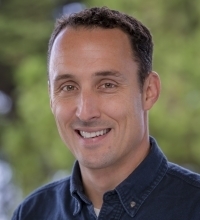
Oscar Vargas Ph.D.
Assistant Professor - Botany
- ov20@humboldt.edu
- (707) 826-3674
- SciD 161B
Plant phylogenetics and speciation; diversification in the Californian Floristic Province and the Neotropics
Jeffrey White Ph.D.
Professor - Botany | Biogeography | Science Education
- jww12@humboldt.edu
- (707) 826-5551
- SciA 355B
Biogeography, Rare Plants, Systematics, Climate Change Education, Media and Communication in Science, STEM learning and Pedagogy.
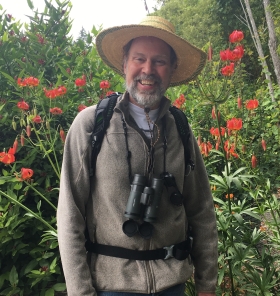
Mark Wilson Ph.D.
Professor - Microbiology and Cellular and Molecular Biology
- msw13@humboldt.edu
- (707) 826-5557
- SciB 222
I am broadly interested in the use of molecular genetics to address environmental questions, particularly questions concerning microbial ecology and diversity. This includes gene biogeography, gene expression, enzyme activity, microscale localization, physiological analyses, and genetic characterization of individual cells and populations in field sites. I am interested in interdisciplinary studies, for example with ecologists, civil / environmental engineers and analytical chemists who are applying biological technologies to environmental problems. I am also interested in the characterization of interesting microbial isolates.
Jianmin Zhong Ph.D.
Professor - Microbiology and Cellular and Molecular Biology
- jz15@humboldt.edu
- (707) 826-5554
- SciB 220
To uncover the nature of tick-bacteria symbiosis and tick-pathogen interactions

